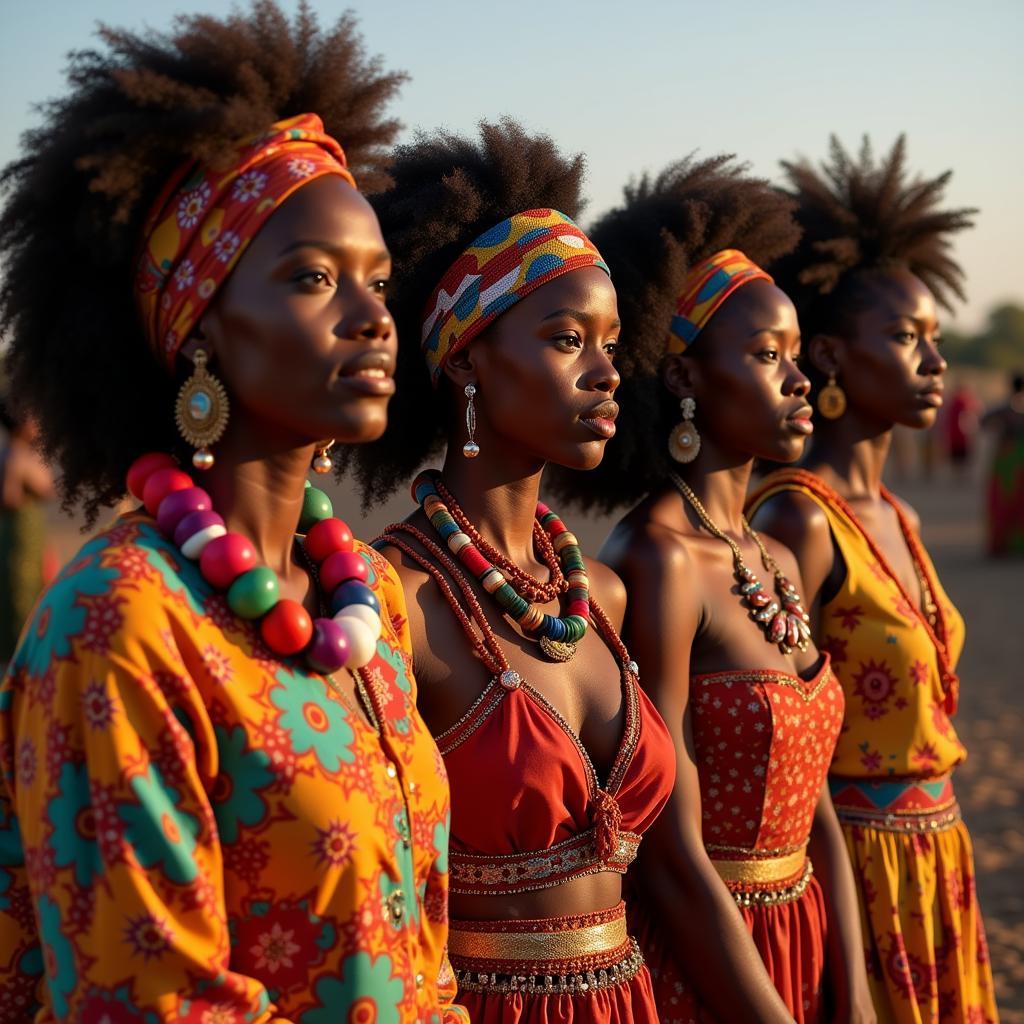The Ultimate Guide to African Cichlid Species List: A Comprehensive Exploration
African cichlids are a vibrant and diverse group of fish that have captivated the hearts of aquarists worldwide. With their stunning colors, unique behaviors, and remarkable adaptations, these fascinating creatures offer a rewarding and engaging experience for hobbyists of all levels. In this comprehensive guide, we’ll delve into the fascinating world of African cichlids, exploring their diverse species, their natural habitats, and the captivating aspects that make them so popular.
A Glimpse into the World of African Cichlids
African cichlids are known for their remarkable diversity, encompassing a wide range of species with unique characteristics. They are native to the freshwater lakes and rivers of Africa, particularly the Great Lakes region, including Lake Malawi, Lake Tanganyika, and Lake Victoria. Their remarkable adaptations to these diverse environments have resulted in a wide array of shapes, sizes, colors, and behaviors, making them a truly captivating group of fish.
The Diversity of African Cichlid Species
The sheer variety of African cichlid species is truly astounding. Here’s a glimpse into some of the most popular and captivating groups:
Mbuna Cichlids
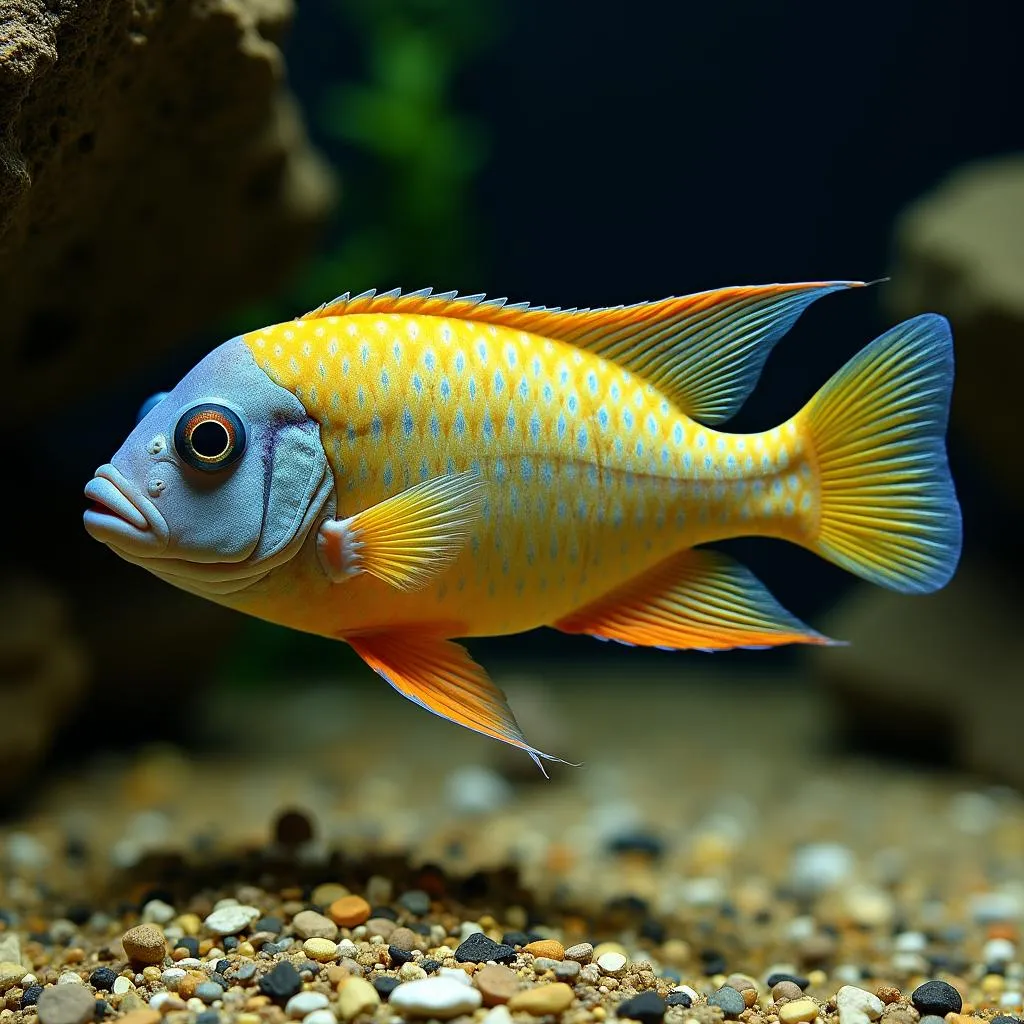 Mbuna Cichlids
Mbuna Cichlids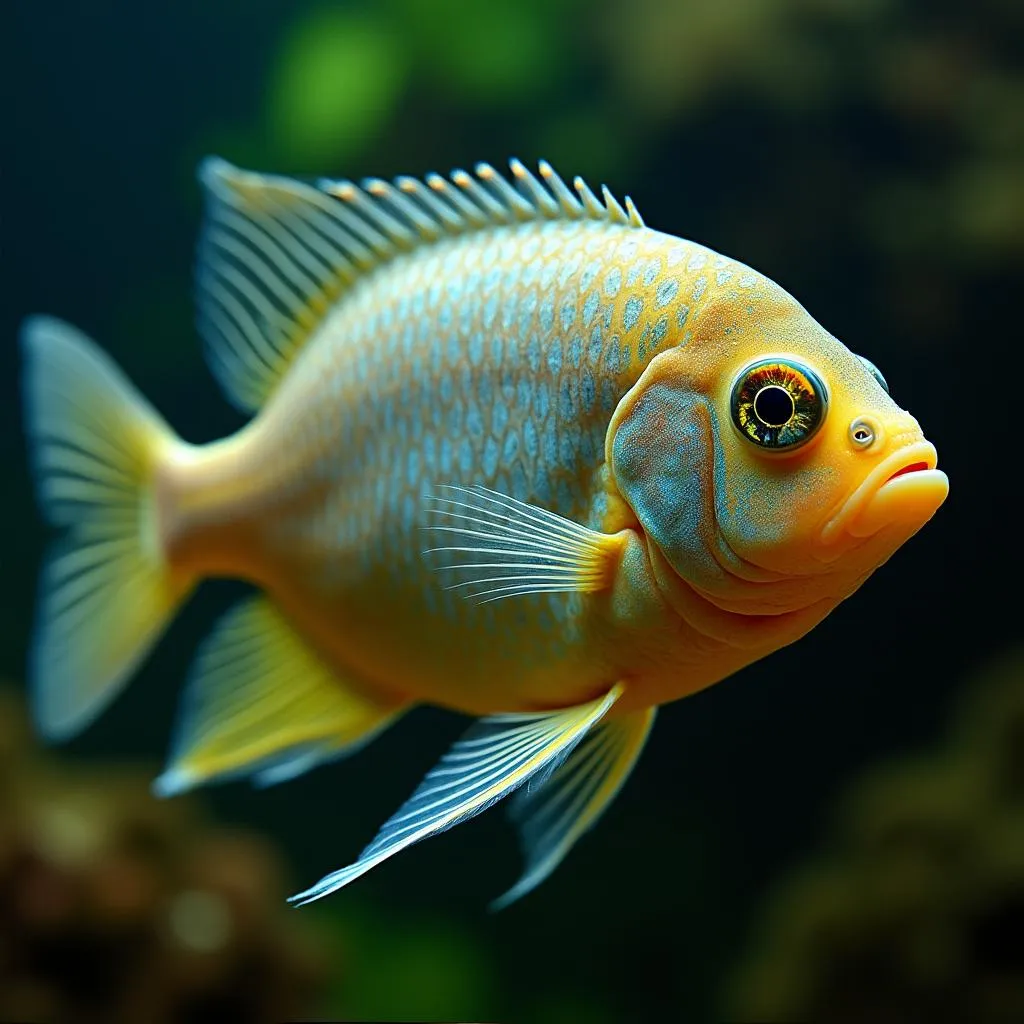 Haplochromis Cichlids
Haplochromis Cichlids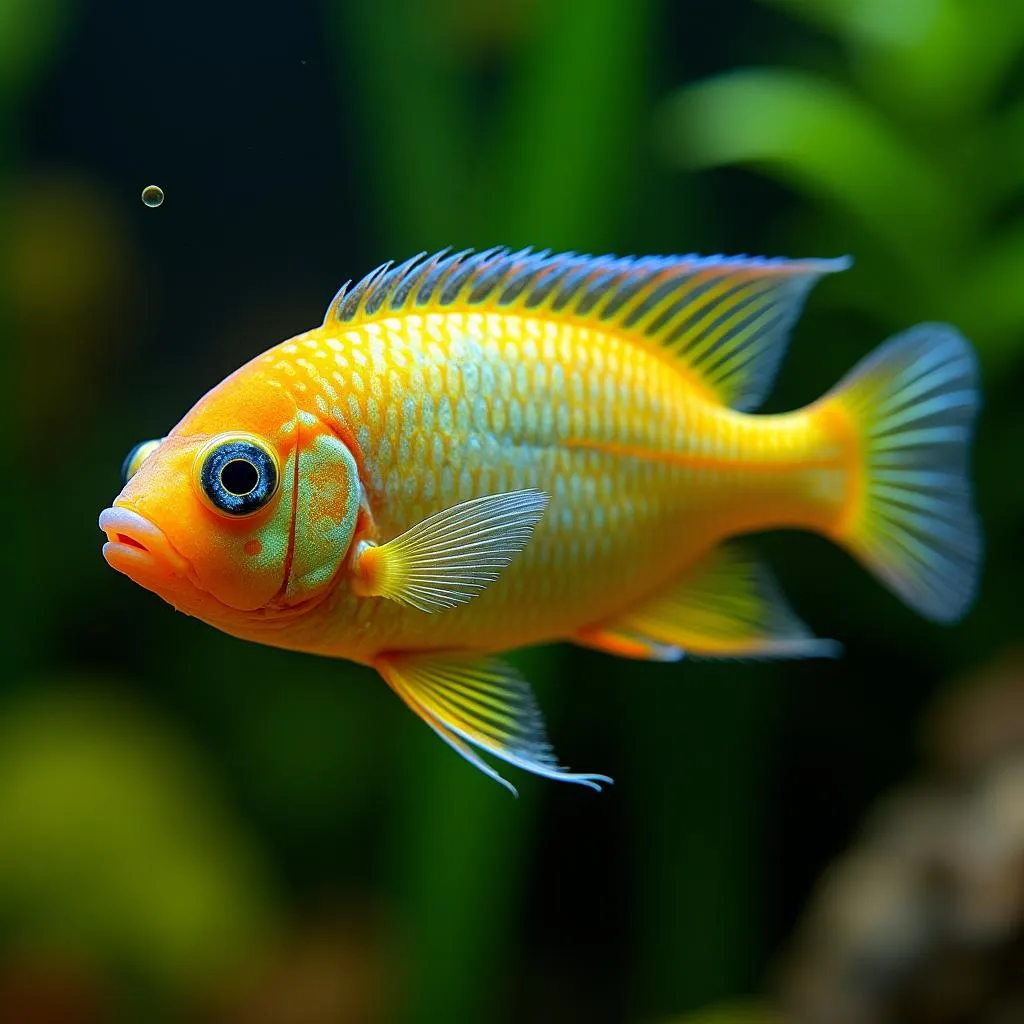 Pelvicachromis Cichlids
Pelvicachromis Cichlids
Tanganyika Cichlids
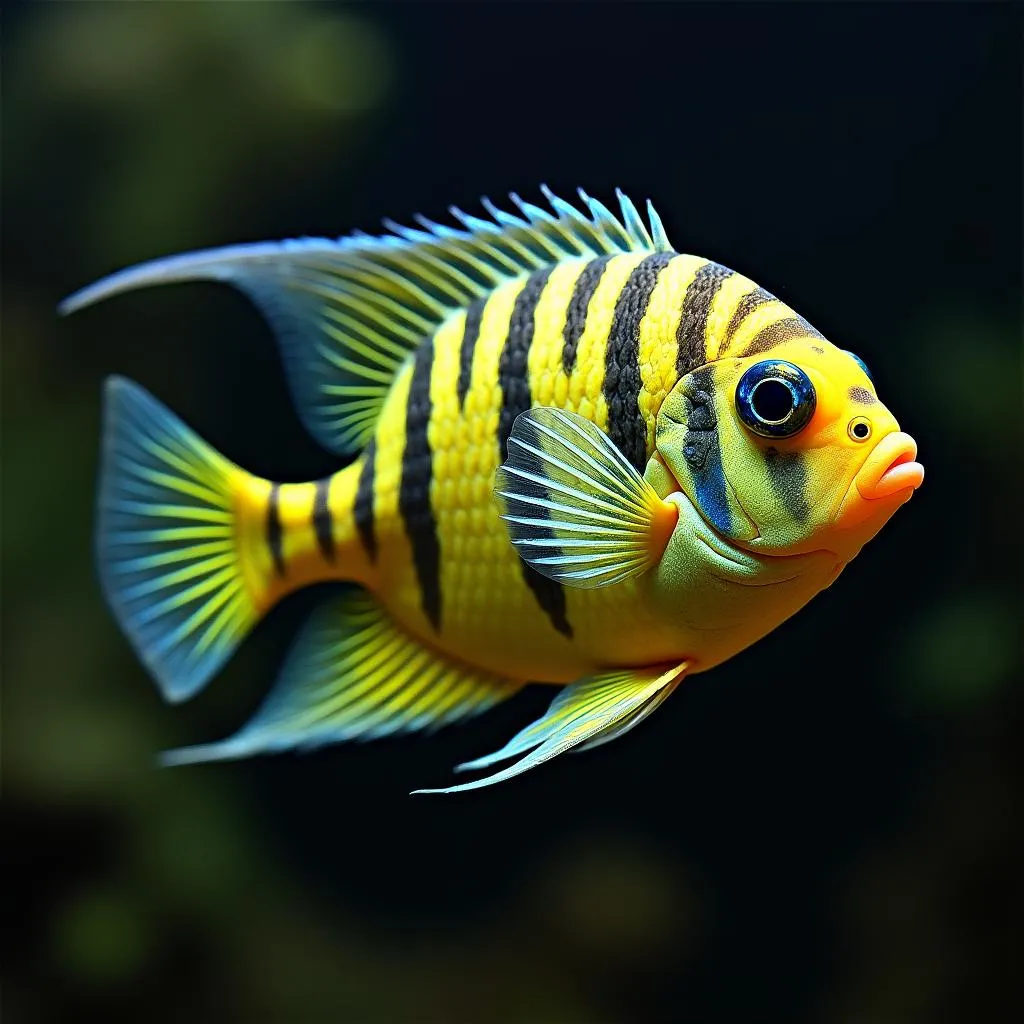 Tropheus Cichlids
Tropheus Cichlids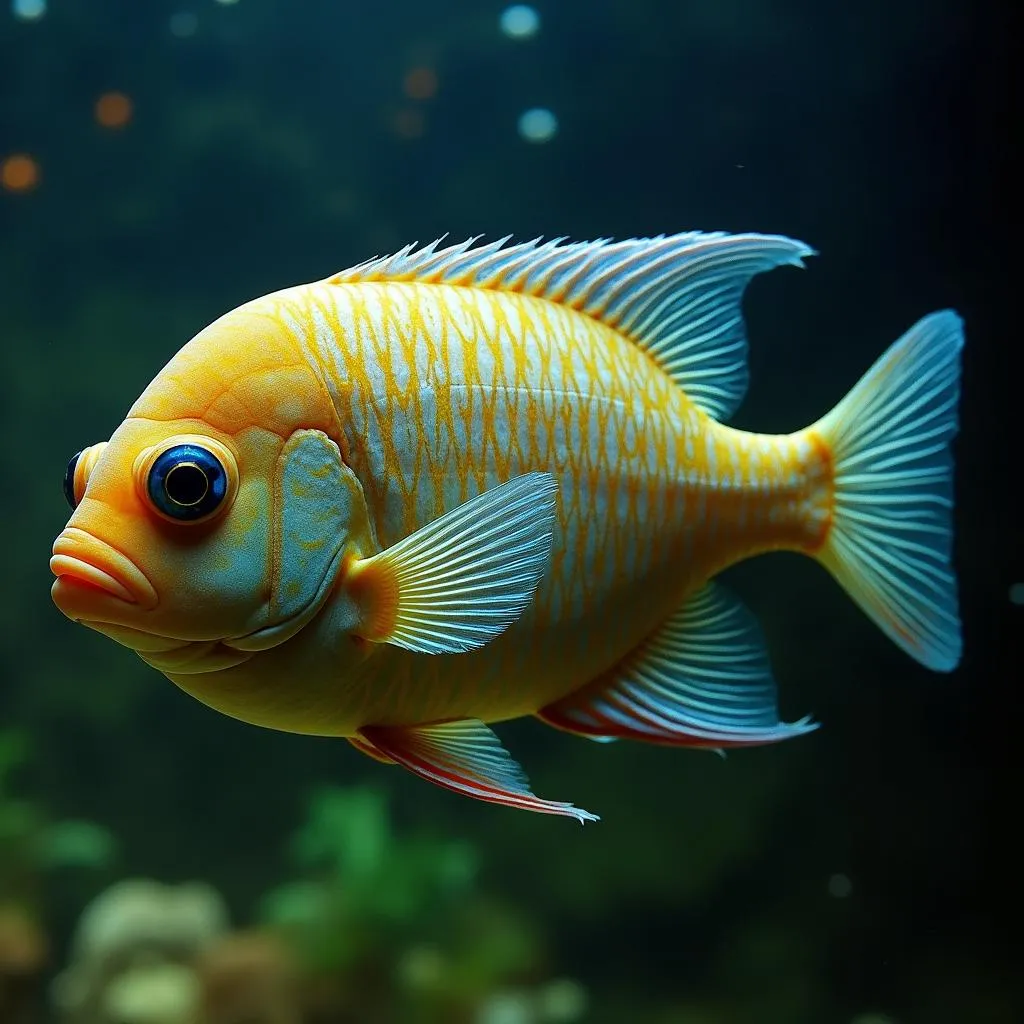 Frontosa Cichlids
Frontosa Cichlids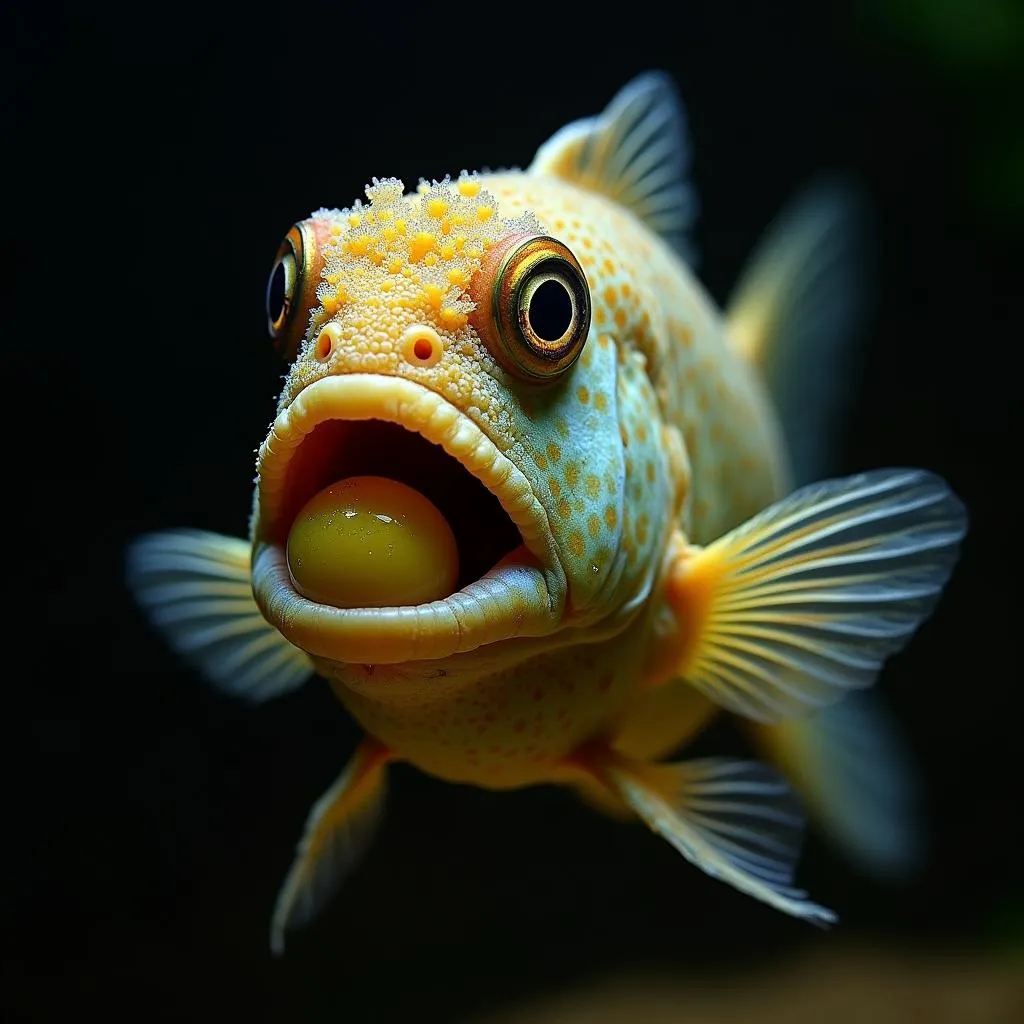 Calvus Cichlids
Calvus Cichlids
Lake Victoria Cichlids
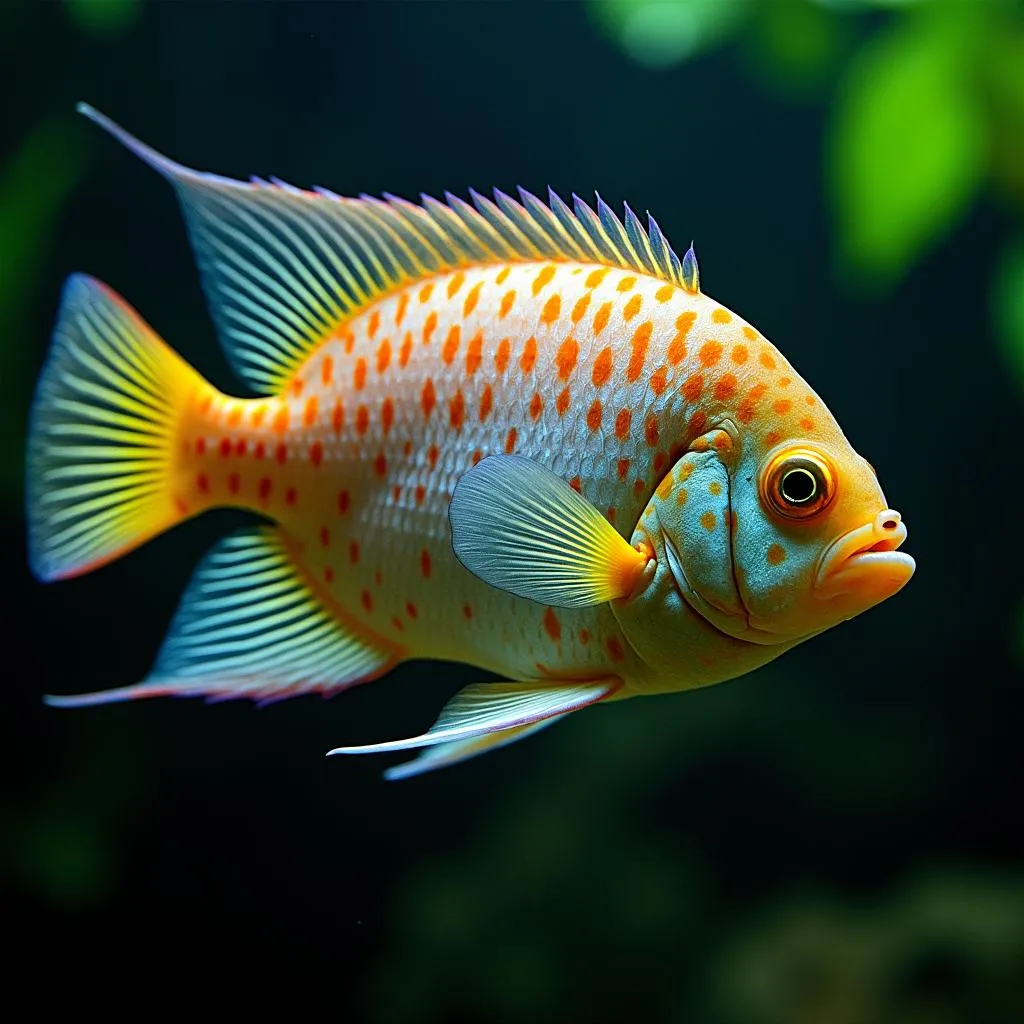 Victorian Cichlids
Victorian Cichlids
Exploring the Natural Habitats of African Cichlids
African cichlids thrive in a variety of freshwater habitats, including lakes, rivers, and swamps. Each habitat presents unique challenges and opportunities, influencing the evolution and diversity of these fascinating fish.
- Lake Malawi: Known for its vast rocky shorelines, Lake Malawi is home to a diverse array of Mbuna cichlids, which have adapted to life among the rocks and crevices.
- Lake Tanganyika: Characterized by deep, clear water, Lake Tanganyika is home to a range of cichlid species, including the imposing Frontosa cichlids and the distinctive Calvus cichlids.
- Lake Victoria: Known for its shallow, turbid waters, Lake Victoria is home to a diverse array of cichlid species, including the Haplochromis genus, which has undergone remarkable diversification.
The Captivating World of African Cichlid Behaviors
African cichlids are not only visually stunning but also fascinating in their behaviors. These include:
- Territoriality: Many cichlids are highly territorial, defending their space and resources from other fish.
- Breeding Behaviors: African cichlids exhibit a diverse range of breeding behaviors, from elaborate courtship displays to mouthbrooding, where females hold their eggs in their mouths for protection.
- Social Interactions: Some cichlids are highly social, forming complex social hierarchies within their groups. Others are more solitary, preferring to live alone or in pairs.
The Importance of Understanding African Cichlid Care
Successfully keeping African cichlids in an aquarium requires a good understanding of their specific needs.
- Water Parameters: African cichlids require specific water parameters, including pH, hardness, and temperature, depending on their species and origin.
- Tank Size: These fish need adequate tank size to thrive, with larger species requiring larger tanks.
- Diet: African cichlids have diverse dietary needs. Some are herbivores, some are carnivores, and others are omnivores.
- Compatibility: It’s crucial to choose compatible cichlid species for your aquarium to avoid aggression and territorial conflicts.
The Appeal of African Cichlids for Aquarists
African cichlids hold a special appeal for aquarists due to:
- Stunning Visual Diversity: Their wide array of colors, patterns, and shapes makes them a feast for the eyes.
- Engaging Behaviors: Their territoriality, breeding displays, and social interactions provide endless entertainment.
- Challenging and Rewarding: Caring for African cichlids requires a commitment to understanding their specific needs, making it a rewarding experience for dedicated aquarists.
Where to Find African Cichlids
You can find African cichlids for sale at various locations, including:
- Local Pet Stores: Check your local pet stores for a selection of African cichlids.
- Online Retailers: Online retailers offer a wider variety of species, but be sure to research the seller’s reputation before purchasing.
- Specialty Breeders: Specialty breeders often have more unique or rare species and can provide valuable advice on care.
FAQ
What are the best African cichlid species for beginners?
For beginners, smaller, less aggressive species are recommended, such as Pelvicachromis cichlids or some Mbuna species.
How big of a tank do I need for African cichlids?
The size of the tank depends on the specific species you choose. Smaller cichlids can be kept in tanks as small as 20 gallons, while larger species may require tanks of 55 gallons or more.
What is the best food for African cichlids?
African cichlids have diverse dietary needs, so the best food depends on the specific species. Some are herbivores and thrive on algae, while others are carnivores and prefer meaty foods.
Can I keep different African cichlid species together?
While some species can coexist peacefully, it’s essential to choose compatible species to avoid aggression. Research the specific needs and temperament of each species before keeping them together.
Conclusion
African cichlids are a captivating and diverse group of fish that offer a rewarding and enriching experience for aquarists. With their stunning colors, unique behaviors, and fascinating adaptations, they continue to fascinate and inspire aquarists worldwide. By understanding their specific needs and choosing compatible species, you can create a thriving and beautiful African cichlid aquarium that will bring years of enjoyment.

